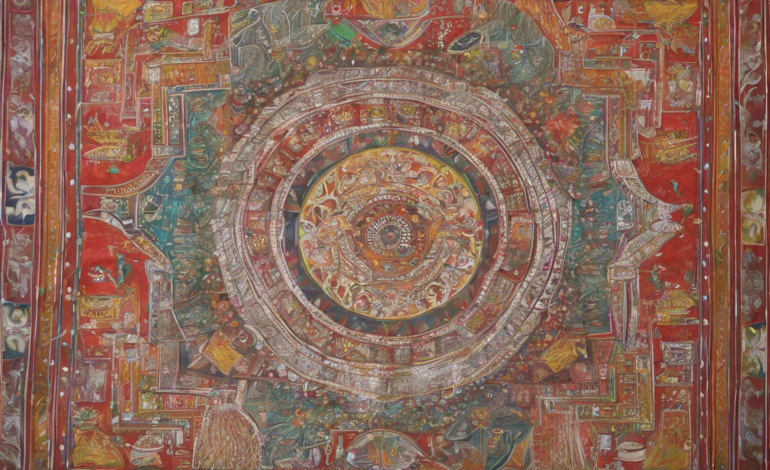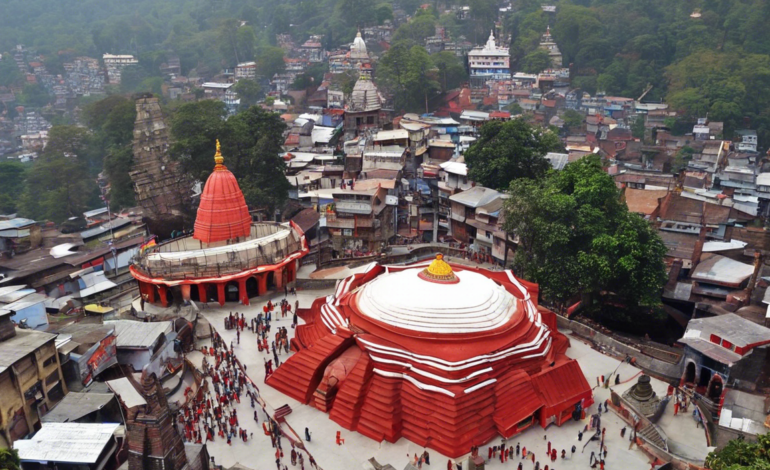When Will Sawan End? Key Dates and Festival Schedule

The holy month of Sawan, also known as Shravan, is a significant period in the Hindu calendar, especially for devotees of Lord Shiva. This auspicious time is dedicated to seeking the blessings of the divine and performing rituals to appease the powerful deity. Sawan usually falls between July and August, and it spans four Mondays (Sawan Somwar) that hold special significance for followers. The exact dates of Sawan vary each year based on the lunar calendar, so it is crucial for devotees to stay informed about the key dates and festival schedule associated with this sacred month.
Key Dates in Sawan:
-
Beginning of Sawan: The commencement of Sawan marks the start of the holy month dedicated to Lord Shiva. Devotees observe fasts, perform pujas, and visit temples during this period. The first day of Sawan is considered highly auspicious for seeking blessings and initiating spiritual endeavors.
-
Sawan Somwar: Mondays in Sawan are particularly revered as they hold special significance for Lord Shiva. Sawan Somwar, or Mondays in the month of Sawan, are dedicated to fasting, prayers, and offering water (known as jalabhishek) to the deity. These days are believed to be highly propitious for seeking the blessings of Lord Shiva and fulfilling one’s wishes.
-
Shravan Shivratri: Shravan Shivratri is a significant festival during Sawan that celebrates the marriage of Lord Shiva and Goddess Parvati. Devotees observe fasts, visit temples, and offer prayers to seek the blessings of the divine couple. Shravan Shivratri is considered highly auspicious for couples seeking marital harmony and individuals looking for a life partner.
-
Sawan Ending: The conclusion of Sawan marks the end of the auspicious month dedicated to Lord Shiva. Devotees bid farewell to Sawan with special prayers, offerings, and rituals to express gratitude for the divine blessings received during this period.
Festival Schedule in Sawan:
-
Hariyali Teej: Celebrated in the month of Sawan, Hariyali Teej is a festival dedicated to the reunion of Lord Shiva and Goddess Parvati. Women observe fasts, wear green attire, and participate in cultural events to commemorate this auspicious occasion.
-
Nag Panchami: Nag Panchami falls in the month of Sawan and is dedicated to worshipping snakes, which hold symbolic significance in Hindu mythology. Devotees offer prayers to snake gods, seek protection from snake bites, and perform rituals to honor these revered creatures.
-
Raksha Bandhan: Raksha Bandhan, a festival celebrating the bond between siblings, often falls during the month of Sawan. Sisters tie rakhi (a sacred thread) on their brothers’ wrists, and brothers vow to protect their sisters. The festival signifies love, protection, and fraternity among siblings.
-
Teej Puja: Teej Puja is a traditional ritual observed by married women during Sawan to pray for the well-being of their spouses and seek marital bliss. Women dress in colorful attire, apply mehndi (henna), and participate in cultural activities to mark this auspicious occasion.
-
Krishna Janmashtami: Krishna Janmashtami, the birth anniversary of Lord Krishna, is celebrated with great fervor in Sawan. Devotees fast, sing devotional songs, and celebrate the divine birth of Lord Krishna with joy and enthusiasm. The festival symbolizes the victory of good over evil and the divine grace of Lord Krishna.
Celebrations and Practices in Sawan:
-
Kanwar Yatra: Kanwar Yatra is a popular pilgrimage undertaken by devotees of Lord Shiva during Sawan. Pilgrims carry holy water from the Ganga River and walk long distances to offer it at Shiva temples. The yatra signifies devotion, penance, and seeking blessings from the divine.
-
Offering Milk and Bilva Leaves: Devotees offer milk, bilva leaves, fruits, and flowers to Lord Shiva during Sawan as a symbol of reverence and devotion. This practice is believed to please the deity and attract divine blessings for spiritual growth and well-being.
-
Fasting and Prayers: Fasting on Mondays and performing special prayers dedicated to Lord Shiva are common practices during Sawan. Devotees abstain from food and offer fruits, water, and prayers with utmost devotion to seek the divine grace and fulfill their wishes.
-
Jalabhishek: Jalabhishek, the ritual of offering water to Lord Shiva, is performed by devotees with utmost reverence during Sawan Somwar. This sacred practice is believed to cleanse the soul, remove obstacles, and bring divine blessings for prosperity and happiness.
Significance of Sawan:
The month of Sawan holds immense spiritual significance for devotees of Lord Shiva. It is believed that prayers, penance, and rituals performed during this auspicious period can bring divine blessings, alleviate troubles, and fulfill desires. Sawan is a time for introspection, purification, and seeking the divine grace of the lord of destruction and creation, Lord Shiva.
FAQs:
-
Q: When does Sawan usually begin and end?
A: Sawan typically begins in July or August and lasts for the entire month based on the lunar calendar. -
Q: Why are Mondays in Sawan significant for devotees of Lord Shiva?
A: Mondays in Sawan are dedicated to Lord Shiva, and special rituals and prayers are performed to seek his divine blessings. -
Q: What are some common practices observed by devotees during Sawan?
A: Fasting, offering water to Lord Shiva (jalabhishek), and visiting Shiva temples are common practices during the month of Sawan. -
Q: Which festivals are celebrated during Sawan apart from those dedicated to Lord Shiva?
A: Festivals like Raksha Bandhan, Janmashtami, and Teej are also celebrated during the auspicious month of Sawan. -
Q: What is the significance of Kanwar Yatra in Sawan?
A: Kanwar Yatra is a pilgrimage undertaken by devotees to fetch holy water from the Ganga River and offer it at Shiva temples during Sawan.
Sawan is a sacred month filled with devotion, rituals, and divine blessings for those seeking spiritual growth and prosperity. By understanding the significance of key dates, festivals, and practices associated with Sawan, devotees can deepen their connection with Lord Shiva and experience the divine presence in their lives.



